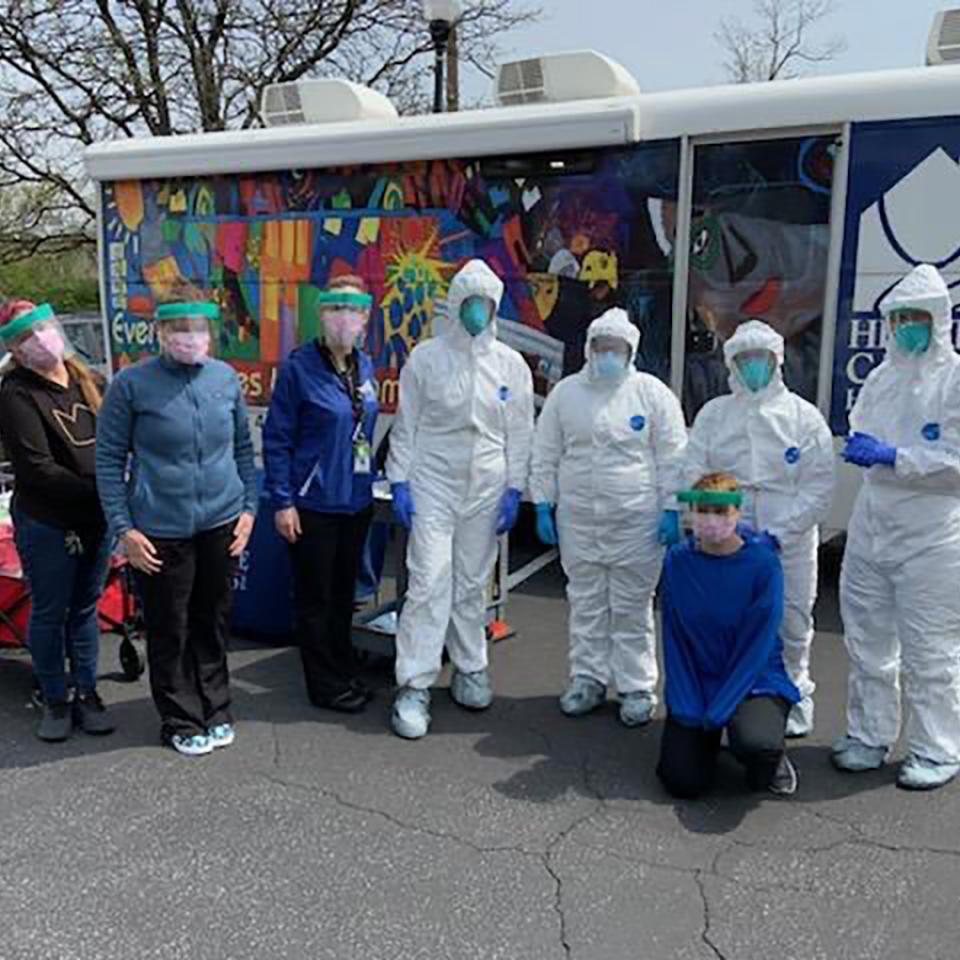Pass the Mic features the voices and stories of people with a lived experience of homelessness. In this edition, hear from Deborah - a US Army veteran, Bingo lover and lifelong volunteer.
The Mayor’s Office of Homeless Services has declared a winter shelter warning for Friday, January 24, 2025, at 4 pm until Wednesday, January 29, 2025, at 9 am. Call 211 (available 24/7) or 443-984-9540 to connect with shelter. Get more info here.



04.22.20
Op-ed excerpt by President and CEO Kevin Lindamood and CMO Adrienne Trustman
On any given night, at least 5,200 Marylanders live in emergency and transitional shelters. Last week a small cluster of positive test results in a local substance use disorder treatment program operated by nonprofit The Baltimore Station prompted the Mayor’s Office of Homeless Services, the Baltimore City Health Department and Health Care for the Homeless to take quick action in partnership with The Baltimore Station’s leadership. On Friday, 56 remaining residents were moved to isolation, where they were all tested for coronavirus — a response developed and implemented in less than 24 hours.
The results are concerning. Thirty residents, more than half of those tested, were positive for COVID-19. More troubling, only one was symptomatic at the time of testing. We don’t know if those without symptoms will become sick over the next couple of weeks. We also don’t know how many the virus will reach through silent spread or who may become seriously ill. Nonetheless, these results demonstrate the speed with which the virus can travel in “congregate settings,” where people live or gather closely together, among those who do not display symptoms.
Similar results have been found at shelters nationally. More than half the residents and staff members of the largest shelter in San Francisco tested positive for the virus last week. In Boston, the Health Care for the Homeless program and state health officials tested everyone in a 400-person shelter; 146 residents tested positive without displaying symptoms. The consistent discovery of asymptomatic spread demands widespread testing in congregate settings — including nursing homes, prisons and homeless shelters — in Maryland and across the country.
Read their full op-ed in The Baltimore Sun here.
More Recent News
Follow a “Day in the life” of SOAR, one of our littlest known programs that makes a big impact for people experiencing homelessness with mental health disabilities. SOAR Coordinator Mina Davis-Harrison and Disability Outreach Assistant Specialists Dave Ramsey and Natasha Legette facilitate the national “SSI/SSDI Outreach, Access, and Recovery” program for all of Baltimore City.
Youth Empowered Society (YES) is Baltimore City’s only drop-in center for youth experiencing homelessness. We chatted with Program Director Ciera Dunlap about the need for youth services, the new location and the year ahead.
Many of our public policies create and prolong homelessness. Regardless of the political party in office, each of us has the power and responsibility to https://nhchc.org/make our values known.



